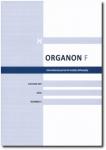Intuition and the End of All –Isms
Intuition and the End of All –Isms
Author(s): Vojtěch KolmanSubject(s): Logic, German Idealism, Pragmatism, Philosophy of Science, Philosophy of Language, Phenomenology
Published by: SAV - Slovenská akadémia vied - Filozofický ústav SAV
Keywords: Brouwer; formalism; Frege; Hegel; intuition; intuitionism; logicism; phenomenology; pragmatism; philosophy of mathematics;
Summary/Abstract: In my paper, some of the most influential -isms in the philosophy of mathematics are discussed with respect to their attitude to intuition. By the end of the all -isms, at first, their tendency to arrive eventually at just the opposite of their previously proclaimed principle is meant. The positive significance to the given tag line is connected with as a simple observation (due to both William James and Wittgenstein) that most of the -isms are justifiable if treated as practical attitudes rather than theoretical systems. Accordingly, intuition’s role will be twofold: first, as a reference point with respect to which the given -isms were portrayed as turning into their very opposites; and, second, as the focal point to which all of them might be seen as contributing to intuition’s pragmatic reading. Along these lines, the path of intuition might be transformed from an epistemological Calvary—or the path of despair, to use Hegel’s words from the beginning of his Phenomenology in which one particular theory is replaced by another which is itself later replaced, etc.—into the path of progress in which some traditional dilemmas such as that between mathematical realism and nominalism are solved.
Journal: Organon F
- Issue Year: 25/2018
- Issue No: 3
- Page Range: 392-409
- Page Count: 18
- Language: English

